Your Cart is Empty
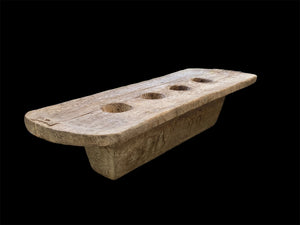
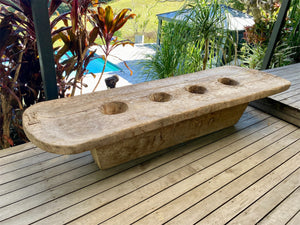
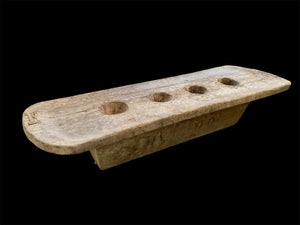
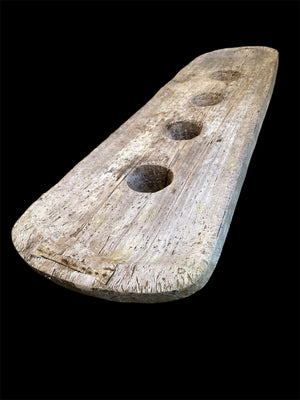
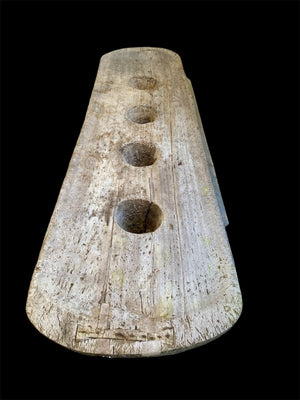
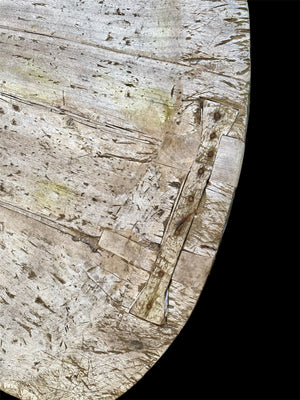
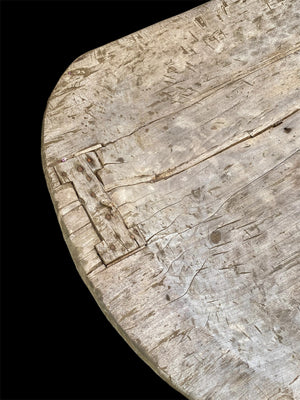
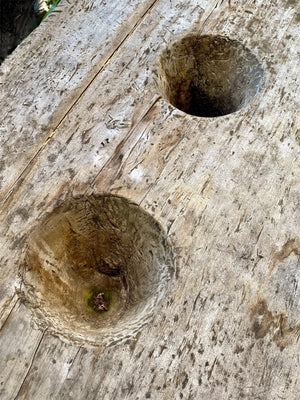
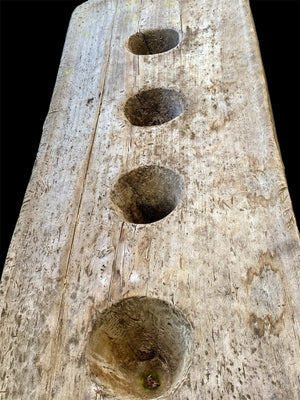
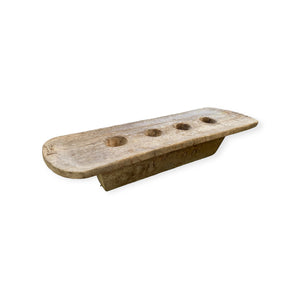
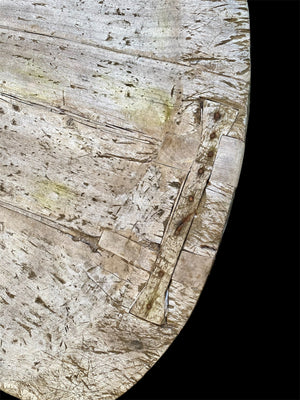
Naga Four Wife Pounding Table
$9,800.00
Naga pounding table. Hand-carved from a single teak tree trunk. Late 19th or early 20th century. From Nagaland, India.
Naga pounding tables were used by the Naga tribes of Northeast India as a grinding and pounding table for grains. The four holes in the centre are where the grains were pounded into flour using long, extremely heavy pestles, accompanied by a trance-like song. Traditionally, the number of holes represent the number of wives in the household, where each wife would have her own position according to her rank (Expedition Naga, Ham & Saul 2006). Four wife tables are rare even within the Naga people, and are a true status piece signifying wealth and high, possibly even Ang or tribal leader status. In Naga tribal society, no one within the village could have a larger pounding table than the Ang on pain of banishment (Expedition Naga, Ham & Saul 2006).
This tribal table is a true statement piece and will serve beautifully as a coffee table or statement piece in your home or outside.
Measurements (all measurements are approximate as this is not a square item): Length 2.48 m x width 74 x height 50 cm
Delivery:
This is an oversize item and will require additional freight charges which are not included in the checkout price.
Options:
- Available for local pickup.
- Email us for a freight quote to anywhere in Australia
As there are no returns on large furniture items, if you have stairs, corners or doorways to navigate, please check your dimensions and contact us before purchase to ensure that the item can be delivered into your home.
Photo credit: W. G. Archer, 1947, Mildred Archer's diary












